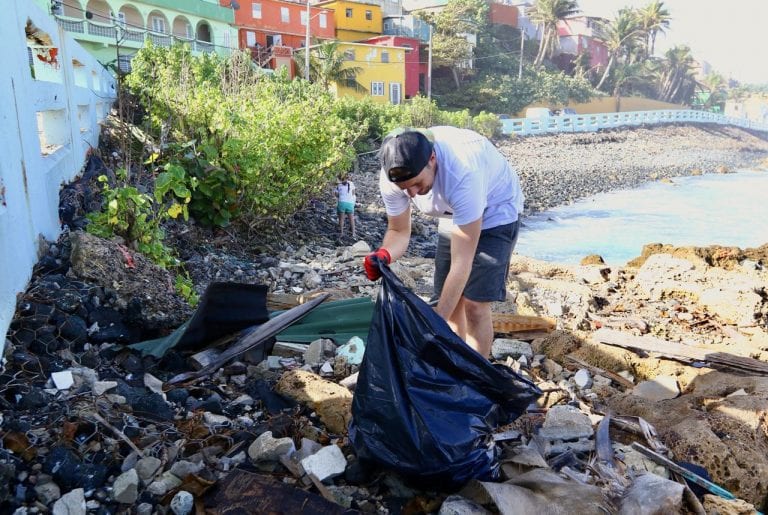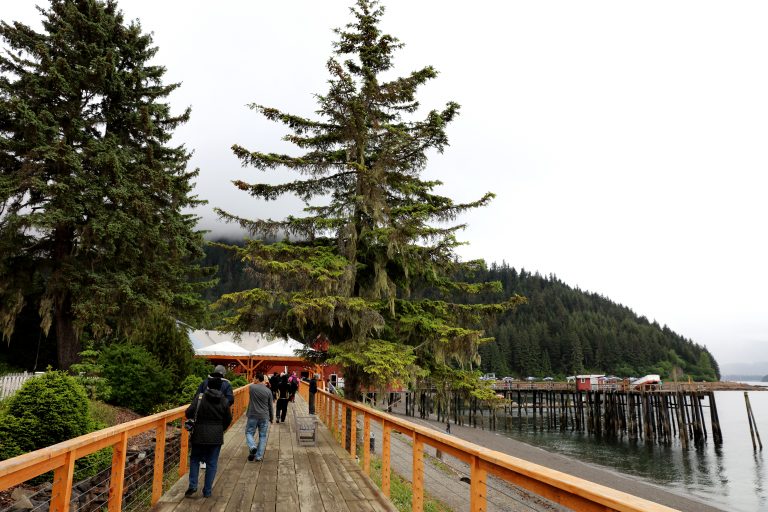“People are increasingly looking for culturally authentic experiences. The only way you get that is if people know who they are and what their story is—and then have the power to tell it,” noted Senator Brian Schatz (D-HI) in his keynote address at the George Washington University’s annual Spring Colloquium on April 17th.
Senator Schatz, who is passionate about the subject of cultural heritage tourism and the politics surrounding it, received an enthusiastic reception from the GW crowd, which included about 100 students, tourism industry professionals and academics.
The event, entitled the Politics of Tourism, was organized by the GW Tourism Alumni Association and Travel Massive. Panelists including Ed Hall III, Tourism Coordinator, Bureau of Indian Affairs; Erik Hansen, Vice President, Government Relations, US Travel Association; Carla Campos, Acting Executive Director of the Puerto Rico Tourism Company; and Gloria Bohan, CEO of Omega World Travel discussed how local, regional and national politics affect the tourism industry, which many see as frequently sidelined.
Senator Schatz didn’t pull any punches in his assessment of current Washington politics noting that, “This administration has not invested in tourism the way it should—not in word, and not in deed. The border wall insulted our neighbors, the Muslim ban insulted a world religion with nearly two billion followers, and the president’s vulgar comments about Africa offended an entire continent. Meanwhile, Trump has tried to cut budgets and programs at key federal agencies that are important to tourism. All this has done a lot of damage.”
Two months ago Senator Schatz introduced the Explore America Act, a bill designed to promote the interests of native Hawaiians in his own state and native people around the country. As Schatz describes it, “The bill is about returning control to the people who live in the places everyone else wants to visit.”
Senator Schatz’s approach is very much aligned with the focus of GW’s Master of Tourism Administration program and the University’s International Institute of Tourism Studies, both of which emphasize the importance of sustainability and community self-determination in tourism good planning. Students learn practical methods for bringing together stakeholders with divergent interests to establish a common vision for a tourism sector that balances the needs of local communities with business interests. The goal is to provide visitors with authentic experiences that contribute to the protection of natural and cultural resources.
GW alumna Carla Campos drew on those lessons in Puerto Rico, where she is widely credited with catalyzing the tourism recovery efforts following Hurricanes Irma and Maria. Campos’ intrepid leadership throughout the crisis earned her this year’s Tourism Innovation Award. Established two years ago to recognize the contributions of Dr. Don Hawkins, Professor Emeritus of Management and Tourism Studies at GW, the award is given to individuals who demonstrate extraordinary leadership in the tourism industry.
In introducing the award at the colloquium International Institute of Tourism Studies Executive Director Seleni Matus remarked, “Six months ago, when I first saw the footage of hurricane ravaged Puerto Rico and read stories of families without food, water, electricity, I reacted the way that I’m sure we all did: with grief and despair. I should have known better. I should have known that amidst the chaos and political infighting, a GW alum would assume the helm of the tourism recovery and with as much gusto as Irma and then Maria visited on the island, lead efforts to reopen the tourist destination for business—amazingly enough, after only three months.”
Today—thanks in large part to Campos’ efforts— most of Puerto Rico’s major hotels are fully operational and the cruise ship season is set to break records. Restaurants and bars are packed. And the streets of Old San Juan are teaming with visitors.
The successful Politics in Tourism colloquium is evidence of GW’s pivotal role as a thought leader in sustainable tourism development—a role that has only become increasingly important since the launch of the UN’s Sustainable Development Goals. These goals emphasize how tourism can lead to job creation, poverty reduction and economic growth. So while the tourism sector may not—as Senator Schatz says—“get enough love at the federal level,” its influence is gaining recognition on the global stage. With the continued leadership of the colloquium’s organizers from the GW Tourism Alumni Network—including Daniel Dozier, Guergana Stoytcheva, Avery Jones and Talia Salem—presenters and attendees, the potential and promise of sustainable tourism becomes increasingly within reach.


